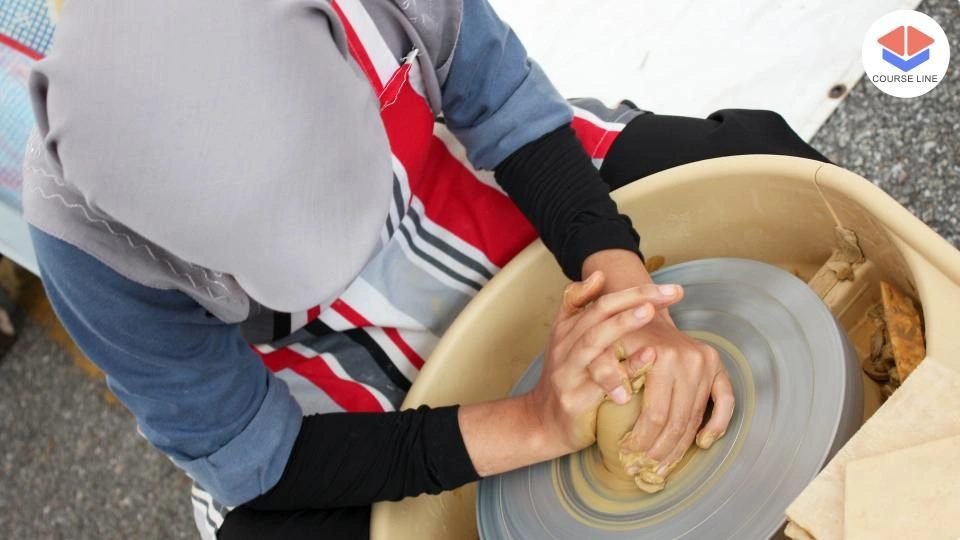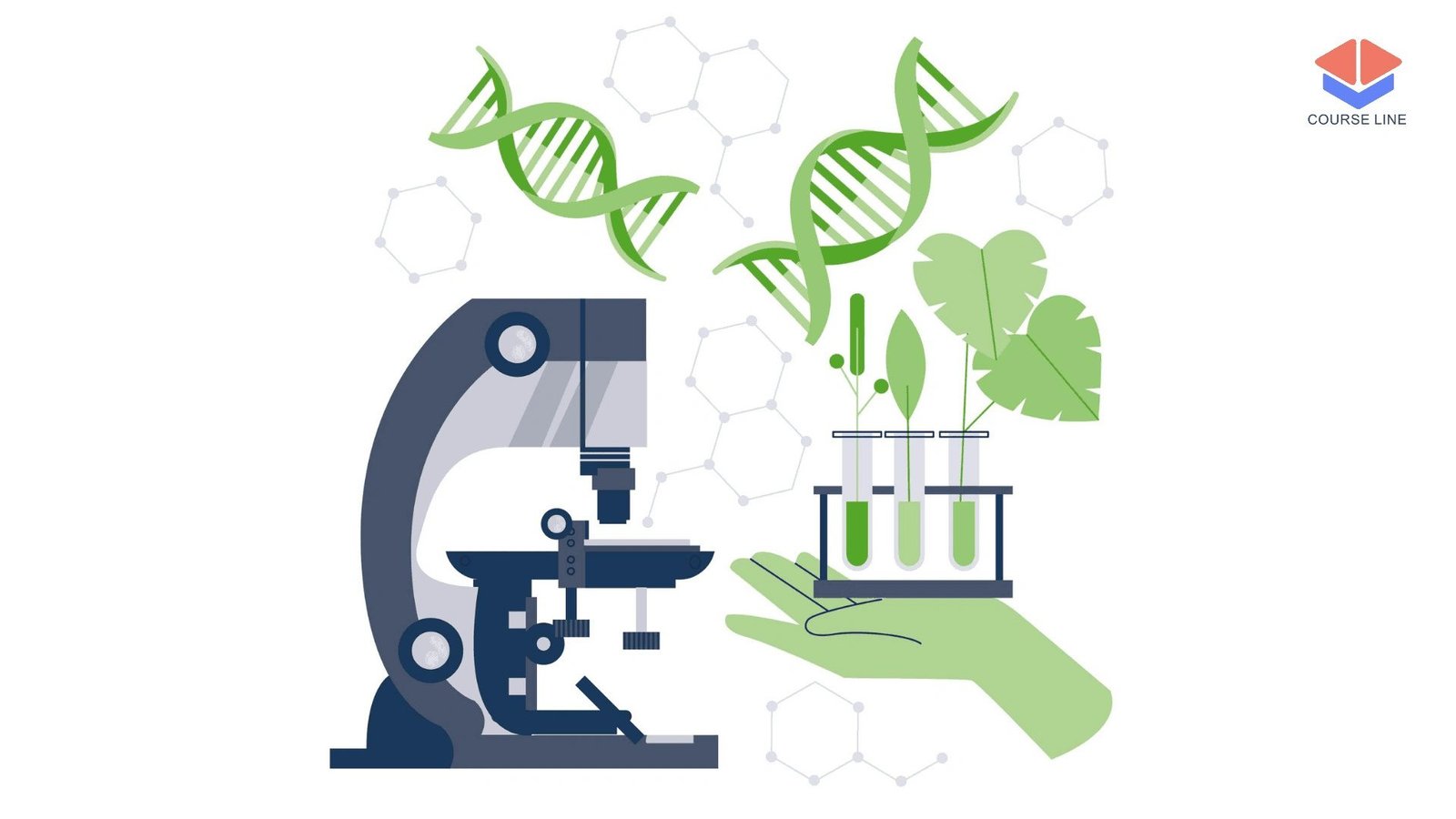Course Features
Price
Study Method
Online | Self-paced
Course Format
Reading Material - PDF, article
Duration
5 hours, 25 minutes
Qualification
No formal qualification
Certificate
At completion
Additional info
Coming soon
- Share
Overview
Ceramics are an essential class of materials with applications ranging from traditional pottery to advanced aerospace and biomedical components. The Ceramic Processing and Forming Level 3 Advanced Diploma is designed to equip learners with in-depth knowledge of ceramic materials and hands-on experience in shaping and processing techniques used across modern industries. This programme bridges the gap between theoretical material science and real-world manufacturing practices, making it a valuable qualification for both aspiring technicians and professionals seeking to advance in the field.
The course begins with an introduction to the types, properties, and applications of ceramics, helping learners develop a foundational understanding of the role ceramics play in various sectors. It then explores the raw materials used in ceramic production, including sourcing, preparation, and quality control, which are crucial to achieving consistency and performance in finished products.
A major focus of the programme is on ceramic processing techniques. Students will gain practical knowledge in powder processing, shaping methods such as extrusion, slip casting, and pressing, as well as firing and sintering processes that strengthen and stabilize ceramic components. Advanced forming techniques including isostatic pressing and ceramic 3D printing are also covered, offering learners insight into the latest innovations and technologies shaping the industry.
Additional modules explore glazing and surface finishing, detailing how aesthetics and functional properties are enhanced through various treatments. Quality assurance processes and defect analysis are also discussed to ensure learners understand how to maintain high production standards in industrial settings.
The course places strong emphasis on the industrial applications of ceramics, examining their use in architecture, electronics, renewable energy, automotive engineering, aerospace, and healthcare. Through case studies and hands-on lab work, students apply what they’ve learned in practical scenarios, simulating real-world challenges and solutions.
The final section of the course looks at the future of ceramics, highlighting trends in sustainable production, eco-friendly practices, and technological innovation. By the end of the course, students will have developed the technical skills, critical thinking, and industry awareness needed to thrive in modern ceramic processing environments.
Who is this course for?
Ceramics are an essential class of materials with applications ranging from traditional pottery to advanced aerospace and biomedical components. The Ceramic Processing and Forming Level 3 Advanced Diploma is designed to equip learners with in-depth knowledge of ceramic materials and hands-on experience in shaping and processing techniques used across modern industries. This programme bridges the gap between theoretical material science and real-world manufacturing practices, making it a valuable qualification for both aspiring technicians and professionals seeking to advance in the field.
The course begins with an introduction to the types, properties, and applications of ceramics, helping learners develop a foundational understanding of the role ceramics play in various sectors. It then explores the raw materials used in ceramic production, including sourcing, preparation, and quality control, which are crucial to achieving consistency and performance in finished products.
A major focus of the programme is on ceramic processing techniques. Students will gain practical knowledge in powder processing, shaping methods such as extrusion, slip casting, and pressing, as well as firing and sintering processes that strengthen and stabilize ceramic components. Advanced forming techniques including isostatic pressing and ceramic 3D printing are also covered, offering learners insight into the latest innovations and technologies shaping the industry.
Additional modules explore glazing and surface finishing, detailing how aesthetics and functional properties are enhanced through various treatments. Quality assurance processes and defect analysis are also discussed to ensure learners understand how to maintain high production standards in industrial settings.
The course places strong emphasis on the industrial applications of ceramics, examining their use in architecture, electronics, renewable energy, automotive engineering, aerospace, and healthcare. Through case studies and hands-on lab work, students apply what they’ve learned in practical scenarios, simulating real-world challenges and solutions.
The final section of the course looks at the future of ceramics, highlighting trends in sustainable production, eco-friendly practices, and technological innovation. By the end of the course, students will have developed the technical skills, critical thinking, and industry awareness needed to thrive in modern ceramic processing environments.
Requirements
Ceramics are an essential class of materials with applications ranging from traditional pottery to advanced aerospace and biomedical components. The Ceramic Processing and Forming Level 3 Advanced Diploma is designed to equip learners with in-depth knowledge of ceramic materials and hands-on experience in shaping and processing techniques used across modern industries. This programme bridges the gap between theoretical material science and real-world manufacturing practices, making it a valuable qualification for both aspiring technicians and professionals seeking to advance in the field.
The course begins with an introduction to the types, properties, and applications of ceramics, helping learners develop a foundational understanding of the role ceramics play in various sectors. It then explores the raw materials used in ceramic production, including sourcing, preparation, and quality control, which are crucial to achieving consistency and performance in finished products.
A major focus of the programme is on ceramic processing techniques. Students will gain practical knowledge in powder processing, shaping methods such as extrusion, slip casting, and pressing, as well as firing and sintering processes that strengthen and stabilize ceramic components. Advanced forming techniques including isostatic pressing and ceramic 3D printing are also covered, offering learners insight into the latest innovations and technologies shaping the industry.
Additional modules explore glazing and surface finishing, detailing how aesthetics and functional properties are enhanced through various treatments. Quality assurance processes and defect analysis are also discussed to ensure learners understand how to maintain high production standards in industrial settings.
The course places strong emphasis on the industrial applications of ceramics, examining their use in architecture, electronics, renewable energy, automotive engineering, aerospace, and healthcare. Through case studies and hands-on lab work, students apply what they’ve learned in practical scenarios, simulating real-world challenges and solutions.
The final section of the course looks at the future of ceramics, highlighting trends in sustainable production, eco-friendly practices, and technological innovation. By the end of the course, students will have developed the technical skills, critical thinking, and industry awareness needed to thrive in modern ceramic processing environments.
Career path
Ceramics are an essential class of materials with applications ranging from traditional pottery to advanced aerospace and biomedical components. The Ceramic Processing and Forming Level 3 Advanced Diploma is designed to equip learners with in-depth knowledge of ceramic materials and hands-on experience in shaping and processing techniques used across modern industries. This programme bridges the gap between theoretical material science and real-world manufacturing practices, making it a valuable qualification for both aspiring technicians and professionals seeking to advance in the field.
The course begins with an introduction to the types, properties, and applications of ceramics, helping learners develop a foundational understanding of the role ceramics play in various sectors. It then explores the raw materials used in ceramic production, including sourcing, preparation, and quality control, which are crucial to achieving consistency and performance in finished products.
A major focus of the programme is on ceramic processing techniques. Students will gain practical knowledge in powder processing, shaping methods such as extrusion, slip casting, and pressing, as well as firing and sintering processes that strengthen and stabilize ceramic components. Advanced forming techniques including isostatic pressing and ceramic 3D printing are also covered, offering learners insight into the latest innovations and technologies shaping the industry.
Additional modules explore glazing and surface finishing, detailing how aesthetics and functional properties are enhanced through various treatments. Quality assurance processes and defect analysis are also discussed to ensure learners understand how to maintain high production standards in industrial settings.
The course places strong emphasis on the industrial applications of ceramics, examining their use in architecture, electronics, renewable energy, automotive engineering, aerospace, and healthcare. Through case studies and hands-on lab work, students apply what they’ve learned in practical scenarios, simulating real-world challenges and solutions.
The final section of the course looks at the future of ceramics, highlighting trends in sustainable production, eco-friendly practices, and technological innovation. By the end of the course, students will have developed the technical skills, critical thinking, and industry awareness needed to thrive in modern ceramic processing environments.
-
- What are Ceramics? 00:10:00
- Types of Ceramics 00:10:00
- Properties of Ceramics 00:10:00
-
- Raw Materials for Ceramic Manufacturing 00:10:00
- Raw Material Preparation 00:10:00
- Quality Control in Raw Material Preparation 00:10:00
- Powder Processing 00:10:00
- Shaping Techniques for Ceramic Parts 00:10:00
- Firing and Sintering 00:10:00
- Isostatic Pressing 00:10:00
- Ceramic 3D Printing 00:10:00
- Advanced Molding Techniques 00:10:00
- Ceramics in Architecture and Construction 00:10:00
- Ceramics in Electronics and Energy 00:10:00
- Ceramics in Aerospace, Automotive, and Healthcare 00:10:00
- Case Study: Manufacturing a Ceramic Product 00:10:00
- Hands-on Projects and Lab Work 00:10:00
- Assessment and Review 00:10:00
- Premium Certificate 00:15:00

No Reviews found for this course.
Is this certificate recognized?
Yes, our premium certificate and transcript are widely recognized and accepted by embassies worldwide, particularly by the UK embassy. This adds credibility to your qualification and enhances its value for professional and academic purposes.
I am a beginner. Is this course suitable for me?
Yes, this course is designed for learners of all levels, including beginners. The content is structured to provide step-by-step guidance, ensuring that even those with no prior experience can follow along and gain valuable knowledge.
I am a professional. Is this course suitable for me?
Yes, professionals will also benefit from this course. It covers advanced concepts, practical applications, and industry insights that can help enhance existing skills and knowledge. Whether you are looking to refine your expertise or expand your qualifications, this course provides valuable learning.
Does this course have an expiry date?
No, you have lifetime access to the course. Once enrolled, you can revisit the materials at any time as long as the course remains available. Additionally, we regularly update our content to ensure it stays relevant and up to date.
How do I claim my free certificate?
I trust you’re in good health. Your free certificate can be located in the Achievement section. The option to purchase a CPD certificate is available but entirely optional, and you may choose to skip it. Please be aware that it’s crucial to click the “Complete” button to ensure the certificate is generated, as this process is entirely automated.
Does this course have assessments and assignments?
Yes, the course includes both assessments and assignments. Your final marks will be determined by a combination of 20% from assignments and 80% from assessments. These evaluations are designed to test your understanding and ensure you have grasped the key concepts effectively.
Is this course accredited?
We are a recognized course provider with CPD, UKRLP, and AOHT membership. The logos of these accreditation bodies will be featured on your premium certificate and transcript, ensuring credibility and professional recognition.
Will I receive a certificate upon completion?
Yes, you will receive a free digital certificate automatically once you complete the course. If you would like a premium CPD-accredited certificate, either in digital or physical format, you can upgrade for a small fee.
Course Features
Price
Study Method
Online | Self-paced
Course Format
Reading Material - PDF, article
Duration
5 hours, 25 minutes
Qualification
No formal qualification
Certificate
At completion
Additional info
Coming soon
- Share
Business Finance Level 5 Advanced Diploma
Course Line239৳ 80,283.17Original price was: ৳ 80,283.17.৳ 2,456.01Current price is: ৳ 2,456.01.HND in Digital Marketing & Media Strategy
Course Line237৳ 80,283.17Original price was: ৳ 80,283.17.৳ 2,456.01Current price is: ৳ 2,456.01.Biotechnology
Course Line237৳ 80,283.17Original price was: ৳ 80,283.17.৳ 2,456.01Current price is: ৳ 2,456.01.





